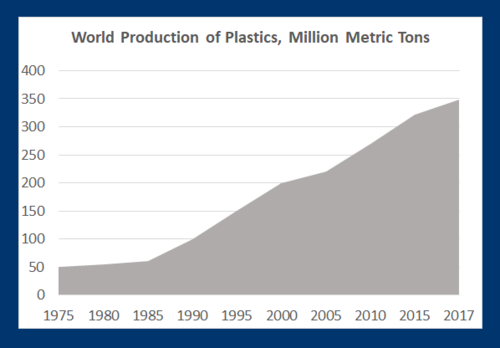Countries Return Plastic Waste: BBC
Plastic waste is durable and can require centuries to decompose. Burning destroys plastic, but emits harmful emissions. Despite increasing amounts of plastic produced, the United States and Europe report that less than 10 percent of plastic is recycled. Increasingly, the plastic waste was shipped to developing nations, but much of that is unusable. “Often, materials that can't be recycled end up being burned illegally, dumped in landfills or waterways, creating risks to the environment and public health,” reports BBC News. China, once the largest importer of such waste, imposed new restrictions in 2018. Smaller emerging economies are overwhelmed. The Philippines and Malaysia are among the nations that are returning plastic waste that is contaminated. Other countries simply dispose of any plastic that does not meet recycling and purity standards. Poland, Malaysia and Taiwan are enacting tougher rules while Thailand, Vietnam and India have or plan full bans on imported plastic.The long-term solution rests in countries prohibiting packaging excess. – YaleGlobal
Countries Return Plastic Waste: BBC
A growing number of countries are taking a stand, with some demanding that wealthy nations take back their plastic waste and others imposing bans
Monday, June 10, 2019
Read the article from BBC News about countries resisting imports of plastic waste.

(Source: Statista)
BBC News
Copyright © 2019 BBC.